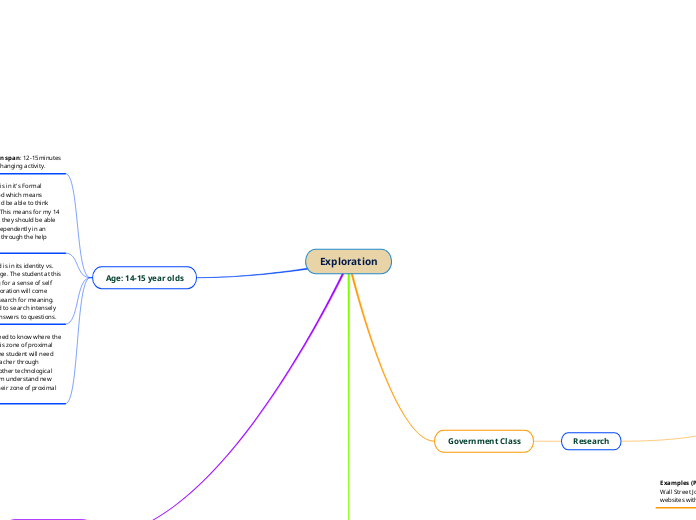Exploration
Cross curricular ties
Math:
Proof and Paradox
Science:
Geologic feature
mapping
Language Arts:
Intertexuality
Government Class
Research
Finding Reliable sources
Correlational Features
Primary sources,
secondary sources,
well reasoned arguments
unbiased...
Purpose
Authority
Currency
Accuracy
Objectivity
Depth
Defining features of reliable sources:
Misconception:
Undergeneralization:
"Wall Street Journal has all
the features that define a
reliable source. This means
it is the only reliable source
out there."
Overgeneralization:
"Wikipedia had correct
information once. This
means it is guaranteed to
have correct information
when researching my paper."
Prototype:
Peer Reviewed Journals
Non-examples (negative instances):
blog posts, wikipedia
Examples (Positive instances):
Wall Street Journal, Pew Research,
websites with .gov
Gender (will be
a mixed class)
Girls: need for social
interaction and interaction
with peers as well as the
teacher. Excessive stress
may also be debilitating.
Boys: will require more
opportunities to move
around. Activities need
to have some degree of
competition for them to
be engaged. Moderate
stress is enabling.
Age: 14-15 year olds
Vygotsky: we need to know where the
student is at in his zone of proximal
development. The student will need
help from the teacher through
scaffolding and other technological
tools to help them understand new
information in their zone of proximal
development.
Erickson: the child is in its identity vs.
role confusion stage. The student at this
stage is searching for a sense of self
which means exploration will come
naturally as they search for meaning.
They are expected to search intensely
as they seek for answers to questions.
Piaget: the child is in it's Formal
operational period which means
the student should be able to think
more abstractly. This means for my 14
and 15 year olds, they should be able
to think more independently in an
abstract manner through the help
of scaffolding.
Attention span: 12-15minutes
without changing activity.

